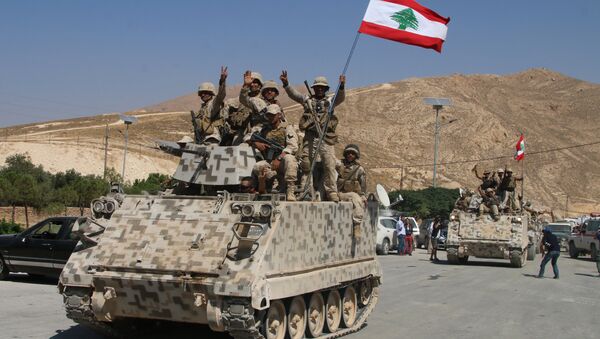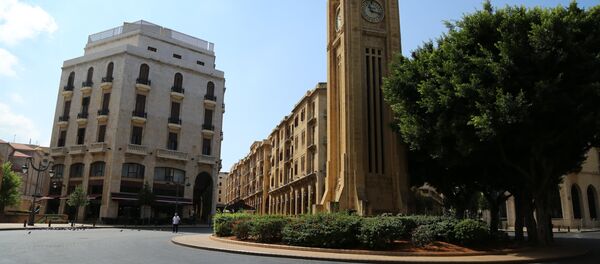Lebanese troops began an offensive near the town of Ras Baalbek on August 19, and later raised the Spanish flag as a mark of respect to the victims of the van attack in Barcelona on August 17.
Until now the battle against Daesh has been led by Hezbollah, the Iranian-backed militia which has strong support among many Lebanese Shia Muslims, who make up about 30 percent of the population.
Dr. Franklin Lamb, a Middle East researcher at Oxford University, said the decision by President Michel Aoun to send in the Lebanese Army was "purely political."
"Hezbollah has tried to make gains, but wanted the Lebanese Army involved so as not to humiliate the state of Lebanon more than it is already," Dr. Lamb told Sputnik.
"Hezbollah has influence with Aoun and with [General Abbas] Ibrahim and the ISF [Internal Security Forces]," said Dr. Lamb.
There are an estimated 600 Daesh fighters in the mountainous area between Ras Baalbek and Al Qaa in eastern Lebanon, an enclave which they have held since 2014.
Emergency Response: Day 4 pic.twitter.com/7E8keoq0k5
— Lebanese Red Cross (@RedCrossLebanon) 22 August 2017
They were forced out of the area on the opposite side of the border by the Syrian army many months ago, leaving the militants surrounded by hostile forces.
Since the offensive began at the weekend, Daesh positions have been pounded with heavy artillery and minefields are being removed.
Dr. Lamb claimed Hezbollah was telling the army to surround the area while they carried out the fighting because "they wanted a role for the army."
In July, Hezbollah made major advances against al-Nusra Front rebels close to the Syrian border.
"They took some heat when they said it was a 'victory for Lebanon.' That upset the president and the Maronite [Christian] and Sunni [Muslim] establishment," Dr. Lamb told Sputnik.
In total Daesh controlled 120 square kilometers (46 square miles) of Lebanon's territory, but on August 22 the Lebanese military announced 80 percent had been recaptured.
At least 20 Daesh militants have been killed while 10 Lebanese soldiers have been wounded during the operation.
الرئيس عون تفقد جرحى الجيش، وتمنى لهم الشفاء العاجل، محيياً تضحياتهم مع رفاقهم في سبيل تحرير الجرود من الإرهابيين. pic.twitter.com/gmwL0GvDgI
— Lebanese Presidency (@LBpresidency) 20 August 2017
[Tweet: "President Aoun visits wounded soldiers and wishes them a speedy recovery, and greets the sacrifice with their comrades in the liberation of territories from terrorists"]
On August 18, President Aoun told a visiting Tunisian delegation the army were preparing for a final battle with Daesh.
"Today, we are blessed with stability and security; our army is ready for the battle against the terrorists; and we will win," he said, speaking at the Baabda Palace near Beirut.
Dr. Lamb said the war in Syria had a terrible effect on Lebanon and had sparked off a sectarianism which had laid dormant in Lebanese society since the civil wars of the 1980s.
Hezbollah has been fighting in support of the Syrian government of President Bashar al-Assad while many Sunnis have supported rebel movements, including Daesh and the al-Nusra Front, as well as groups like the Free Syrian Army.
"It's hard to overstate the poisonous effect of the sectarianism. I've seen kids of eight fighting in school over being Sunni or Shia," Dr. Lamb, who often visits the Lebanon, told Sputnik.
"This war has exacerbated the sectarianism. 80 percent of Sunnis in Lebanon actually want Israel to invade Lebanon to deal with the Shias.
"This war in Syria has ripped open a lot of wounds in Lebanon. It's poisonous and deadly," Dr. Lamb concluded.





